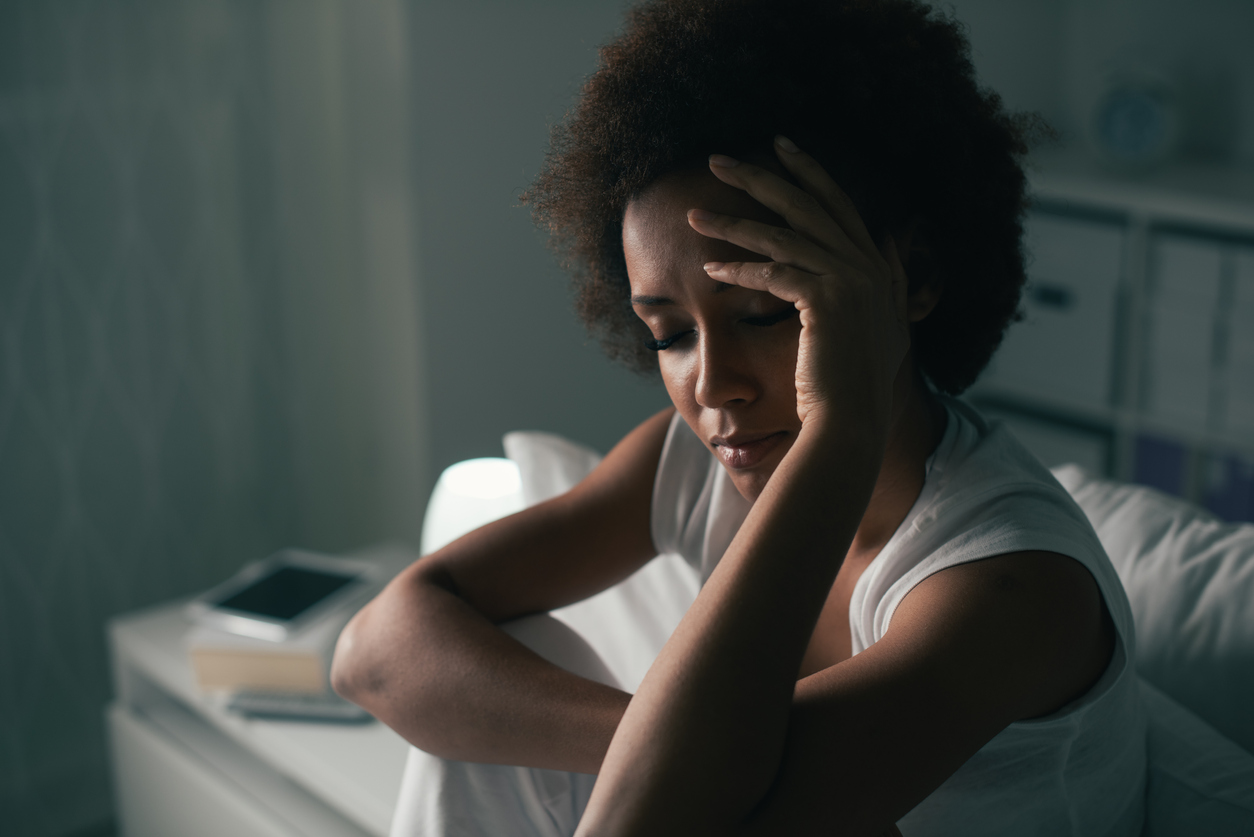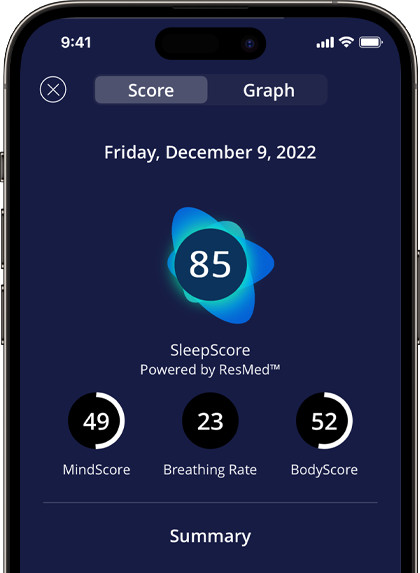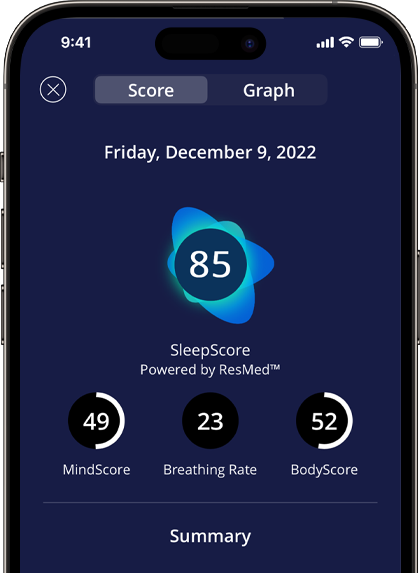The Mysterious Link Between Long COVID and Sleep Problems

What is Long COVID?
As the COVID-19 pandemic continues to evolve, medical experts are beginning to understand and respond to those suffering from the long-term effects of the virus. While many who recover from COVID-19 only experience mild to moderate symptoms for several weeks, some studies suggest that nearly one-third of suffers may experience lingering symptoms even 6 months after infection. Even those with no or mild symptoms of COVID-19 may experience what the CDC refers to as “post-COVID conditions”.
Those with long-term symptoms have been dubbed the “long-haulers”, and the term “long COVID” is a general term used to describe signs and symptoms that persist long after the time of original infection (beyond approximately 3 to 4 weeks). These long-term symptoms include a wide range of health problems – some mild, some severe – that are new, returning, or ongoing.
Despite the extraordinary number of individuals reporting long COVID, the cause of long COVID and those at risk of developing it remains an enigma. In fact, a recent article in the renowned journal The Lancet highlighted that long COVID is a modern medical challenge.
As thousands of Americans begin or continue to experience the long-term effects of COVID-19, researchers are finding a common thread of symptoms among long-haulers: sleep problems. In this article, we’ll roundup the most recent research on long-term COVID and sleep issues, as well as highlight how public health agencies are supporting the health and wellness of those suffering from long COVID.
How Long COVID has impacted general health and wellness?
Globally, more than 4.5 million lives have been lost due to COVID-19 as of September 2021, with nearly 700,000 deaths in the United States alone. Beyond the growing death toll, recent evidence has shown that some COVID-19 survivors experience prolonged symptoms ranging from chronic cough, shortness of breath, chest tightness, cognitive dysfunction, psychological problems, extreme fatigue, and – perhaps most commonly – sleep issues.
So, how common are sleep problems among those with long COVID? While more research is needed to confirm preliminary findings, some studies have found that insomnia symptoms and sleep-related fatigue are even more frequent complaints than shortness of breath or depression in those with long-COVID. The rate of insomnia symptoms is approximately 30 percent for long-haulers, and diagnosed insomnia is seen in about 5 to 10 percent of survivors. At 6-months post-infection, about 30 percent of people report lingering sleep difficulties and around 25 percent report anxiety and/or depression.
According to a 2020 survey conducted by the UK Government’s Office for National Statistics in November, around 20 percent of COVID-19 survivors had symptoms that lasted for 5 weeks or longer, and 10 percent had symptoms that lasted for 12 weeks or longer.
One study found that 80 percent of hospitalized COVID-19 survivors showed at least one lingering long COVID symptom at over 7 months post infection. In this study, poor sleep quality was significantly more common – found in nearly 35 percent of individuals – when compared to anxiety (16 percent) or depression (20 percent).
What about sleep health and long COVID?
Fascinatingly, the percentage of people reporting poor sleep at 7 months was relatively similar to the immediate hospitalization of COVID-19. In other words, poor sleep quality may persist months after an individual with severe COVID-19 is released from the hospital. However, it’s important to remember that many factors may be contributing to these findings, and researchers are still unclear about whether COVID-19 directly causes sleep problems or whether it’s simply one part of a complex equation.
For example, many pre-existing risk factors for severe COVID-19 including severe obesity and respiratory disease are also thought to be common among those with sleep disorders, such as obstructive sleep apnea. Obstructive sleep apnea has also been found to be more prevalent in COVID-19 patients requiring hospitalization and in those that progressed to having respiratory failure. In fact, one study found that those with obstructive sleep apnea had an 8-fold greater risk for COVID-19 infection and double the risk of developing respiratory failure.
And these findings aren’t exclusive to the current coronavirus. These long-term effects from COVID-19 are similar to the long-term psychiatric symptoms observed after the SARS outbreak from 2004-2006 that infected over 8,000 people from nearly 30 countries worldwide.
As long COVID symptoms have the potential to debilitate many millions of people globally, public health workers are scrambling to identify treatment options or rehabilitation guidance, as highlighted in a recent Lancet editorial:
“With no proven treatments or even rehabilitation guidance, long COVID affects people’s ability to resume normal life and their capacity to work. The effect on society, from the increased health-care burden and economic and productivity losses, is substantial. Long COVID is a modern medical challenge of the first order.”
What’s being done by public health agencies?
With full recovery for some people with COVID-19 thought to take longer than a year, important issues have been raised to expand current research and improve health services for those suffering from long COVID.
Unfortunately, there’s no clear treatment pathway yet for long haulers.
This is particularly the case for those with sleep problems, in part because of the mystery surrounding what exactly is causing sleep issues to begin with. Sleep problems may be driven by psychological comorbidities such as anxiety and depression that are common in those with long-COVID. Alternatively, sleep problems can be related to neurological damage to sleep-wake centers in the brain after infection. Irrespective of the cause, public health agencies are beginning to offer some advice for those suffering from sleep problems after COVID-19.
For example, the UK’s NICE (National Institute for Health and Care Excellence) guidelines for managing long COVID symptoms are endorsed by many and include giving advice and information on self-management of symptoms, especially through self-monitoring at home (sleep tracking, pulse oximetry, blood pressure).
In the United States, the CDC has also adopted similar guidelines, highlighting that insomnia and other sleep difficulties are commonly reported among people with post-COVID conditions. Unfortunately, neither the CDC nor the NICE are clear on their precise management strategies for sleep problems in those with long COVID. The CDC, for example, offers the following advice:
“Optimizing management of underlying medical conditions might include counseling on lifestyle components such as nutrition, sleep, and stress reduction (e.g., meditation).”
It may be years before researchers have a better grasp on long-COVID sleep problems, as well as the best treatment options for those suffering from this common lingering symptom. Until then, be sure to speak with your doctor if you or someone you love is suffering from unresolved sleep problems after COVID-19.
SleepScore Labs Solutions
Download the free SleepScore App for insights and articles on how well you sleep, the quality and quantity of your sleep cycles, and sleep improvement progress with science-backed tips and insights. Download it for free from App Store and Google Play Store!
You can also visit the SleepScore Store for a wide range of sleep-promoting products carefully curated by SleepScore Labs’ team of researchers including lighting solutions and more to support your sleep-wake schedule!
Sleep well!



